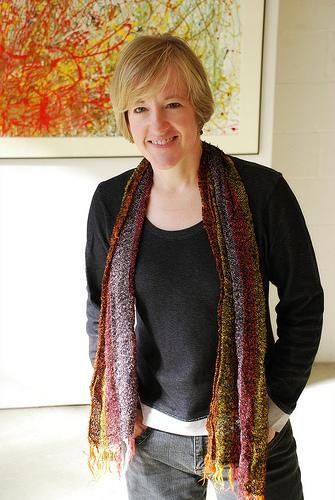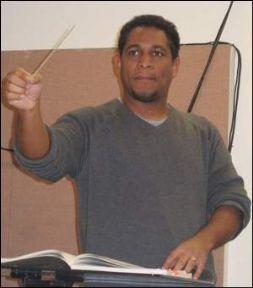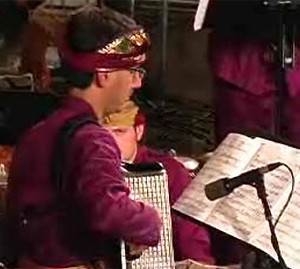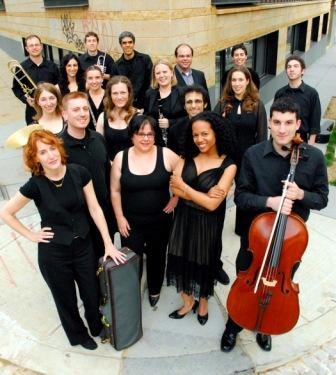Cutting Edge Music at Manhattan's Symphony Space
Victoria Bond Presents Contemporary Composers
By: Susan Hall - Apr 18, 2012
Welltone New Music
Victoria Bond
The Cutting Edge Concerts
New Music Festival
Great Noise Ensemble
Armando Bayolo, Conductor
Matt Van Brink, Only the Piano Will Give Us Our Peace
Carlos Carrillo, De la Brevidad de la Vida
Alexandra Gardner, The Way of Ideas
Victoria Bond, Coqui
Cornelius Dufallo, Paranoid Symmetry
Marc Mellits, Five Machines
Symphony Space
2537 Broadway at 95th Street, New York, NY 10025-6990
Tel: 212.864.5400 | Fax: 212.932.3228 |
April 16, 2012
It was an evening of inspired music at Symphony Space, part of the series of Cutting Edge programs put on by conductor and composer Victoria Bond. Her delightful short chamber piece, Coqui, concluded the first part of the program. Bond had listened as the male frogs, named coqui after the sound of their mating calls, sang all night in Puerto Rico. She then created a counterpoint of coqui pitches. Mixing and matching mating calls were beguiling as performed by the instrumentalists of the Great Noise Ensemble. Under the baton of Armando Bayolo, the group rose to the demands of challenging music throughout a program that presented five composers in addition to Bond.
The evening opened with a technically complex, yet lively composition by Matt Van Brink. Only the piano will give us our peace was based on a sestina by Martin Kennedy. Van Brink likes to take high concepts from literature and mathematics and play with them to form a musical idea. Hearing the piano transform from a plucked instrument to a thing of beauty, the piano’s ‘peace’ is delivered. But Van Brink is not high fallutin. Instead, the personal, intimate and offbeat moments accumulate to move the listener.
Five Machines by Marc Mellits, who has spent summers at Tanglewood, ended the evening. A toast to Steve Reich who the composer particularly admires, the repetitions were brought to life by Great Noise, who clearly had fun performing. Cross-rhythms and syncopation made music that might appear mechanical full of sensuous pleasure. The music soared as Katherine Kellert performed on clarinet, rendering voice-like tones. The pounding bass piano and loud strumming in the fourth part brought out a surprising and oddly satisfying eloquence.
It was comforting to discover in Seneca that life is long enough if it has been lived wisely. Composer Carlos Carillo took up Seneca's essay on the brevity of life in this spirit. His composition was full of wisdom and joy and seemed brief only because it gave such pleasure. His work is technically sophisticated and emotionally powerful.
You want to hear much more of Carillo and Alexandra Gardner whose The Way of Ideas was next up. She talks about creating dramatic musical landscapes, and that she did, but in a curious and challenging way. Although her piece was deftly shaped, her concern for lack of control and her wish to let the music arise from delicious temptation and random thoughts was wonderfully exhibited. Not one but several ribbons rolled out from a sound block only to begin another. Without the pressure of willing, the music became evanescent.
The most complex and extended piece of the evening was by Cornelius Dufallo. Shocked and devastated by the collapse of a dear friend who was consumed by paranoid delusions, Dufallo wanted to set the experience to music. Performing on his amplified violin, textures and colors were extended. As the instrument accompanied itself in playback, you spiral into doublethink. The music winds around sound in your brain and ear, two lines and more, on and on out there.
Dark as the tortured prompt of the composition was, the finale is redemptive. Dufallo spoke of love, and composed in this spirit a tender song for his daughter. The rugged beginning ended with hope.
Surely with the superb Great Noise Ensemble, and six terrific composers, there is much hope for the future of accessible and yet contemporary music.







